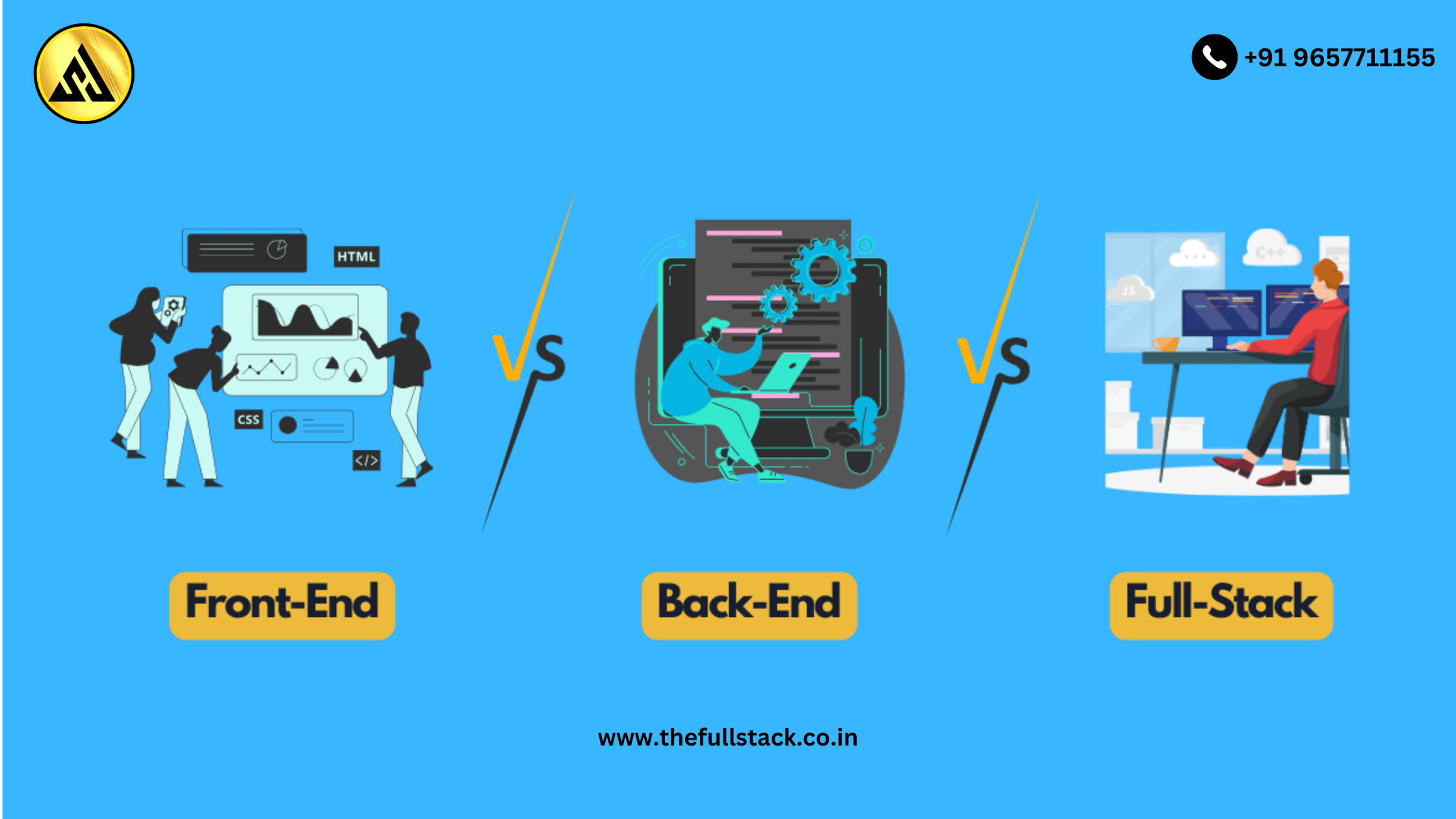
Frontend vs Backend vs Full Stack: What’s the Difference?
The field of web development is flourishing in the current digital era. You’ve undoubtedly heard of frontend, backend, and full stack whether you’re a student, computer enthusiast, or someone preparing to change careers. However, what do these actually mean? Let’s dissect it in a straightforward, approachable manner.
💻 What is Frontend Development?
Frontend development deals with everything you see and interact with on a website or web app. It’s the user interface (UI) and user experience (UX) layer.
✅ Key Responsibilities:
- Designing website layouts
- Making websites responsive across devices
- Ensuring smooth user interaction
- Styling with colors, fonts, buttons, etc.
🔧 Common Technologies:
- HTML – Creates the structure of the page
- CSS – Adds design and layout styles
- JavaScript – Adds interactivity
- Frameworks/Libraries – React.js, Angular, Vue.js
💡 Example:
When you click a button or fill a form on a website, that’s the frontend at work.
🖥️ What is Backend Development?
Backend development focuses on the behind-the-scenes functionality. It powers the logic, databases, and server communication.
✅ Key Responsibilities:
- Managing databases
- Creating APIs (Application Programming Interfaces)
- Authenticating users
- Storing and retrieving data
🔧 Common Technologies:
- Languages – Node.js, Python, Java, PHP, Ruby
- Databases – MySQL, MongoDB, PostgreSQL
- Frameworks – Express.js, Django, Laravel
💡 Example:
When you log in to a website, the backend checks your username and password and decides whether to allow access.
🔁 What is Full Stack Development?
Both front-end and back-end work are handled by a full stack developer. They can create whole web applications from scratch and possess a wide range of skills.
✅ Key Responsibilities:
- Designing user interfaces
- Writing backend logic
- Connecting frontend to backend via APIs
- Deploying apps to servers or the cloud
🔧 Common Full Stack Tech Stacks:
- MERN Stack – MongoDB, Express.js, React, Node.js
- MEAN Stack – MongoDB, Express.js, Angular, Node.js
- LAMP Stack – Linux, Apache, MySQL, PHP
💡 Example:
A full stack developer can build a social media website where users can sign up, post content, and interact—all by themselves.
📊 Key Differences at a Glance
| Feature | Frontend Developer | Backend Developer | Full Stack Developer |
| Focus | User Interface | Server, Database, Logic | Both Frontend & Backend |
| Tech Stack | HTML, CSS, JS, React, etc. | Node.js, Python, SQL, etc. | MERN, MEAN, Django + React, etc. |
| Tools Used | Figma, VS Code, Chrome DevTools | Postman, DB Tools, VS Code | All of the above |
| Salary (Approx.) | ₹4–10 LPA (India) | ₹5–12 LPA (India) | ₹6–15+ LPA (India) |
🎯 Which Path Should You Choose?
It depends on your interest:
- 👁️ Like designing and creating visual interfaces? Go for Frontend.
- 🧠 Love logic, data handling, and working behind the scenes? Choose Backend.
- 🔥 Want to be a versatile developer with high demand? Aim for Full Stack.
📌 Final Thoughts
In order to create contemporary online apps, each function is essential, regardless of whether you begin with front-end, back-end, or full stack development. Anyone can become proficient in these abilities with commitment and regular practice.
Are you prepared to begin your journey of personal growth?
you may be interested in this blog here:–
API-First Development and GraphQL: A Beginner’s Guide to the Future of APIs
Top 10 Backend Frameworks in 2025: Which One Should You Choose?


Leave a Reply